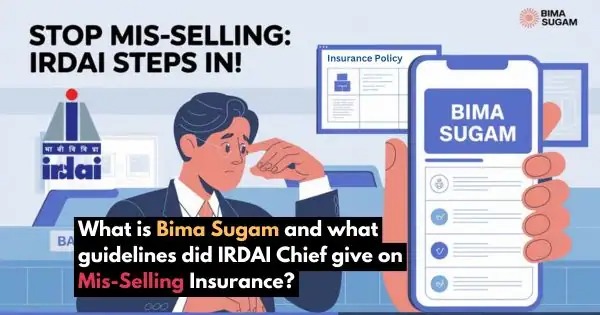@JUDGMENTTAG-ORDER
Anna Chandy, J.@mdashThis revision petition is from an order of the learned Munsif-Magistrate, Pattambi convicting the petitioner u/s 5 (1) read with Section 17 of the Madras Commercial Crops Markets Act, 1933 and sentencing him to pay a fine of Rs. 25/- or in default to undergo simple imprisonment for two weeks for having used his premises for purchasing arecanuts without a license. Some questions of law were raised before us by the learned defense counsel. The first objection taken is that the prosecution is bad inasmuch as the provision of bylaw 30 (1) of the Malabar Market Committee Bylaws has not been complied with. Bylaw 30 (1) enjoins that:
Any prosecution for violation of any of the provisions of the Act, Rules or the Bylaws can be launched only by resolution of the Committee.
It is pointed out that this case which was launched by the Secretary of the Market Committee is not backed by a resolution of the Committee to institute proceedings against the accused. The Learned Counsel for the respondent would argue that the Secretary is competent to launch such prosecution as he has been authorized to do so by the Committee in accordance with the provisions of bylaw 30 (2) which reads thus :
It is open to the Committee to authorize either the Chairman or the Secretary to launch prosecutions either by general or special order duly recorded as a resolution specifying if necessary the nature of the cases where the prosecution can be so launched.
It seems to us that a reading of both the clauses together would settle the matter in favor of the prosecution. Both clauses (1) and (2) of by-law 30 deal with the same matter, that is launching prosecutions for violation of the provisions of the Act, Rules or Bylaws; and though the use of the word "only" in clause (i) seems to create a degree of confusion, it is quite dear that the combined effect of the two clauses is to permit the launching of prosecution either by a resolution of the Committee or by the Chairman or Secretary if such officer is duly authorized to do so. Any other interpretation Will be manifestly against the intention of the framers of the Bylaws which must have been to prevent frivolous prosecution by subordinate officers without the knowledge and consent of the Committee and at the same time to obviate the administrative inconvenience of having to look into every case of violation by providing that responsible officers duly authorized by the Committee may launch prosecutions. As specifically stated in clause (2) such authorization may be general or special. It is not disputed here that the Secretary has been duly authorized generally to launch prosecutions. It may also be pointed out that the Act itself provides that the Committee may authorize any person or persons to institute prosecutions under the Act. Section 20(2) of the Act reads:
Prosecutions under this Act may be instituted by any person duly authorized in writing by the Market Committee in this behalf.
We therefore hold that the prosecution is competent
2. Another contention is that the market is functioning in such a way as to impose unreasonable restrictions on the petitioner''s fundamental right to carry on business. Though the constitutional validity of the Madras Commercial Crops'' Markets Act has been upheld by the Supreme Court, in
The Act, therefore, was the result of a long exploratory investigation by experts in the field, conceived and enacted to regulate the buying and selling of commercial crops by providing suitable and regulated market by eliminating middlemen and bringing face to face the producer and the buyer so that they may meet on equal terms, thereby eradicating or at any rate reducing the scope for exploitation in dealings.
* * *
Shortly stated, the Act, Rules and the Bye-laws framed thereunder have a long-term target of providing a net work of markets wherein facilities for correct weighment are ensured, storage accommodation is provided, and equal powers of bargaining ensured, so that the growers may bring their commercial crops to the market and sell them at reasonable prices.'' Till such markets are established, the said provisions, by imposing licensing restrictions, enable the buyers and sellers to meet in licensed premises, ensure correct weighment, make available to them reliable market information and provide for them a simple machinery for settlement of disputes. After the markets are-built or opened by the marketing committees within a reasonable Tadius from the market, as prescribed by the Rules, no license is issued; thereafter all growers will have to resort to the market for vending their goods. The result of the implementation of the Act would be to eliminate, as far as possible, the middle-men and to give reasonable facilities for the growers of Commercial crops to secure best prices for their commodities.
* * *
We therefore hold that, having regard to the entire scheme of the Act, the impugned provisions of the Act constitute reasonable restrictions on a citizen''s right to do business, and therefore they are valid.
The defense contention is that even though the Market Act itself is valid, a market set up under it may function in such a way as to impose unreasonable restrictions on his right to do business. Even granting that the details of day to day administration may be challenged in this manner, it does not seem to us that there is enough evidence on record to hold that any unreasonable or harsh restriction has been placed on the accused or anyone else. His complaint is that the growers of arecanuts bring in their produce only late in the evening by which time the market is closed and therefore he is forced to purchase the arecanuts in his own shop as any delay in processing the arecanuts will diminish their value. P. W. 2 the Market Supervisor has given evidence that arecanut business is seasonal and the market will be open up to 8 P. M. and sometimes up to 10 P. M. depending upon the pressure of work. The defense witnesses on the other hand swear that the market closes at 5 P. M. However, D. Ws. 3 and 4 both licensed dealers admitted that previously the market used to be kept open up to 10 P. M. but that had led to difficulties as there was inadequate light in the market. D. W. 4 states that there are two ''petromax lights'' in the market. He goes on to-say that though his shop is lighted by similar lamps he prefers to buy his arecanuts in his shop as there is less rush'' there. In fact the total effect of the defense evidence on this point is that it is more convenient for the dealers to buy arecanuts in their own shops than in the official market. Needless to say such slight inconveniences cannot be considered reprehensible restrictions on the dealer''s fundamental right to carry on his business. It may also be pointed out that there is no evidence of any formal representation made by the dealers to the appropriate authorities to redress their grievances which fact seems to support the prosecution suggestion that the dealers would rather not purchase at the authorized market as there is less chance there to circumvent sales tax regulations.
3. Yet another contention raised by the learned defense counsel is that since P. W. 1 who sold arecanuts to the accused is a grower of arecanuts who is permitted by the second proviso to section 5(1) to sell his produce outside the market, the accused in buying from him commits no offence. This contention also has to fail. It will defeat the very purpose of the Act which is enacted primarily to safeguard the interests of the growers by providing them with a regulated market, if the dealers are permitted to use their own premises instead of the market to purchase his produce. The exemption given to the grower by the proviso is as observed by the Supreme Court to cover any sale by him to "another grower whose requirements are greater than what he produced or to a small dealer exempted under the third Proviso to section 5(1)" (Vide

